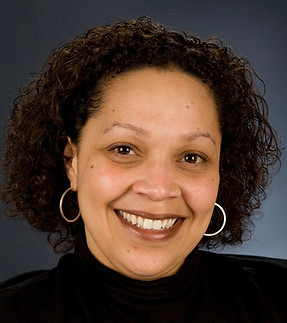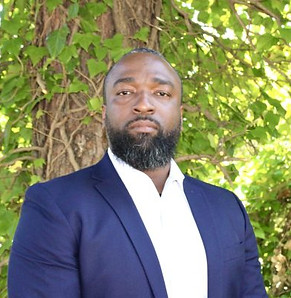

COUNCIL
MEMBERSHIP
Who We Are
Each member of the New Jersey Reparations Council is a thought leader, expert or advocate in their field, and together they bring years of unparalleled cross-sector experience to our mission of reparative justice.
The Council is composed of over 45 subject-matter experts and organized into nine subject matter committees: History of Slavery in New Jersey, Public Narrative and Memory, Economic Justice, Segregation in New Jersey, Democracy, Public Safety and Justice, Health Equity, Environmental Justice and Faith and Black Resistance.
All of the Committee reports will be compiled into one narrative to be released by the Council on Juneteenth 2025.
Research & Digital Media Associate
Research Fellow
Research Fellow
HISTORY OF SLAVERY IN NJ
This Committee examines and studies the history of slavery in New Jersey from its inception as a colony to the ratification of the 13th Amendment in New Jersey. It examines how slavery became deeply embedded in New Jersey society, including with location-specific facts. The Committee's research and analysis uncovers how slavery shaped New Jersey at its founding and the impacts continued into the modern era.
PUBLIC EDUCATION & NARRATIVE
This Committee examines the public memory of slavery in New Jersey, reviewing and building upon the critical work of New Jersey’s Amistad Commission. It evaluates how slavery and African American studies is taught in New Jersey school curricula and examines more broadly the stories New Jersey tells itself about slavery and race. It studies what role a truth commission might play in addressing some of the harms of slavery and its ongoing legacy. It also addresses how slavery affects the cultural and social dimensions of contemporary New Jersey life, including language (e.g., freeholder), monuments, museums, historical and cultural sites and the expressive arts.
Director
Member
Director
Member
Member
Member
ECONOMIC JUSTICE
This Committee examines New Jersey’s historical and current structural racism within our economy and how it drives the staggering racial wealth gap and other economic inequities in New Jersey. The Committee’s work spans from slavery to redlining to the GI Bill, to current policies. It examines the job market, wages and benefits, worker protections (unionization), banking, housing, student loans, lending practices, access to capital, credit, the tax system and other economic dynamics. It also examines the relationship between homeownership and racial inequalities in wealth.
Director
Member
Director
Member
SEGREGATION IN NEW JERSEY
The Segregation Committee examines historical and current residential and spatial segregation, zoning, land use and placement of highways and how these factors contribute to gentrification and educational and health disparities. The committee investigates the role of policy in shaping residential segregation in the Garden State, one of the most racially segregated states in the United States. It examines racism within the housing market, including housing appraisals and devaluation of Black-owned property as well as how and why Black households in New Jersey are disproportionately renters. The Committee scrutinizes and assesses the stark segregation in New Jersey’s K-12 public school system, including the relationship between housing segregation and school segregation, and how this contributes to propagating racial inequities.
Director
Member
Director
Member
Member
Member
DEMOCRACY
The Democracy Committee examines the history of voter suppression in New Jersey experienced by Black voters, going back to its first constitution in 1776, which tied voting to property rights in a time when most Black people in the state were considered “property.” The Committee also studies the obstacles Black communities still face in accessing the ballot, from long-standing structural barriers to disenfranchisement of people with criminal convictions. It studies barriers to representation inherent in New Jersey’s form of government and explores how New Jersey can ensure the equitable electoral power of Black voters.
PUBLIC SAFETY & JUSTICE
This Committee examines how policing in New Jersey – and the United States more broadly – is broken. It examines the history of policing and incarceration in the state, and how it has been used to oppress Black communities, rather than provide for their safety. This Committee also examines how over-policing and involvement in the criminal justice system affect other areas of Black life, particularly in destabilizing Black families. It investigates why New Jersey has some of the worst racial disparities in incarceration between Black and white youth in the nation. It also studies how mass incarceration and all key aspects of the criminal justice system from policing to post-incarceration outcomes have detrimentally impacted New Jersey’s communities and led to additional social inequities.
Director
Member
Member
HEALTH EQUITY
The Health Equity Committee examines how slavery, its aftermath and contemporary structural racism within New Jersey have impacted health outcomes and undermined health equity. It looks at how social determinants of health affect every aspect of the Garden State’s Black residents’ capacity to thrive. It assesses the history and current state of access to quality health care – including preventive medicine, relationships with health care providers, the maternal mortality rate, access to reproductive health options, access to quality nutrition and environmental racism on Black health outcomes. The Committee also examines the relationship between health equity and the racial wealth gap.
ENVIROMENTAL JUSTICE
This Committee explores the historical and current harms of environmental racism on Black communities in New Jersey. The work of the committee includes but is not limited to exposure to the ravages of climate change including flooding, lead in the water, the prevalence of asbestos, lack of green spaces, increased exposure to heat during the summer, air quality and the proximity of neighborhoods to toxic waste dumps.
FAITH & BLACK RESISTANCE
This Committee examines the historical role faith and spirituality, as filtered through Black spiritual practices and religious organizations, played in calls for reparations in New Jersey. It traces the role faith played in animating resistance under slavery to the contemporary moment and marks the changes over time. Additionally, the Committee explores the role of faith in the current movement given its history and the realities of the current moment.
.png)






![JeanPierreBrutus[94].jpeg](https://static.wixstatic.com/media/ddb0f1_65684caa6fb44a11a3d4ec7f42da60b8~mv2.jpeg/v1/crop/x_0,y_0,w_1707,h_1923/fill/w_287,h_323,al_c,q_80,usm_0.66_1.00_0.01,enc_avif,quality_auto/JeanPierreBrutus%5B94%5D.jpeg)




.jpg)




















-p-1080.jpeg)
















.jpg)







